Reena Roy
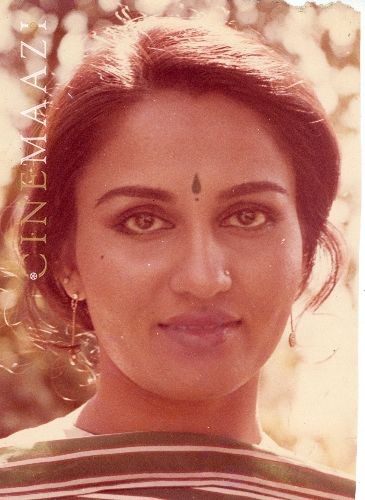
Subscribe to read full article
This section is for paid subscribers only. Our subscription is only $37/- for one full year.
You get unlimited access to all paid section and features on the website with this subscription.
Not ready for a full subscription?
You can access this article for $2 , and have it saved to your account for one year.
- Real Name: Saira Ali
- Born: 7 January, 1957
- Primary Cinema: Hindi
- Parents: Sadiq Ali , Sharda Rai
- Spouse: Mohsin Khan
- Children: Jannat, Sanam
One of the highest-paid actresses of the Hindi film industry in her heydays, Reena Roy is known for her box office successes such as the action thriller Kalicharan (1976), the horror film Nagin (1976), Apnapan (1977), Jaani Dushman (1979), the dramas Aasha (1980), Arpan (1983) and Asha Jyoti (1984), the multi-starrer Naseeb (1981), and the romantic comedy Sanam Teri Kasam (1982). Starting off in films at the age of 15, she made her mark in films such as Zaroorat (1972), Jaise Ko Taisa (1973), and Zakhmee (1975). At the peak of her popularity, she featured in several female-oriented films such as Sau Din Saas Ke (1980), Bezubaan (1982), and Lakshmi (1982). She also earned a Filmfare Award for Best Supporting Actress for her performance in Apnapan (1977), but apparently declined it due to categorical issues. Quitting films post marriage to cricketer Mohsin Khan in 1983, she moved to Pakistan. Returning to acting in 1993, post the disintegration of her marriage, she featured in a pivotal role, in the hit Aadmi Khilona Hai (1993), followed by more films up until 2000. Regaining custody of her daughter, she and her sister Barkha opened an acting school in 2004. She also ventured into politics.
Born Saira Ali on 7 January, 1957, she was the third daughter of actor Sadiq Ali and Sharda Rai, who acted in the film Bawre Nain (1950). After her parents’ divorce, she was renamed Roopa Rai by her mother, which was further changed to Reena Roy by the producer of her first film, Zaroorat (1972). Starting off in films as a teenager, she was signed on for B R Ishara's Nayi Duniya Naye Log (1973) with newcomer Danny Denzongpa, which was temporarily shelved. The pair was cast again by Ishara in Zaroorat, along with newcomer Vijay Arora. The film, a drama minus songs, became a hit, leading to Reena being dubbed as the ‘Zaroorat Girl’. She next made a splash with Jaise Ko Taisa (1973), with her rain dance Abke sawan with Jeetendra becoming a huge hit. Her next few subsequent releases such as Jangal Mein Mangal (1972), Madhosh (1974), Goonj (1974), Rani Aur Lalpari (1975), and Umar Qaid (1975) didn’t make a significant impact, until the films Zakhmee (1975) and Kalicharan (1976). These two films positively boosted her popularity among both audiences and filmmakers. Kalicharan released with low expectations considering it was the directorial debut of Subhash Ghai, who had not succeeded in his acting career. Additionally, it featured Shatrugan Sinha, known for his villainous roles, who was cast as the lead hero. However, the film went to prove naysayers wrong, becoming a hit at the box office. Her pairing with Sinha garnered attention from audiences, and they went on to sign several films together.
The turning point in her career came with Rajkumar Kohli's thriller Nagin (1976), a thriller with a cast that included Sunil Dutt, Jeetendra, Rekha and Mumtaz. She essayed the title role, playing the snake-woman who seeks revenge for the killing of her lover. The highest grossing hit of the year, the film also won her praise for her ‘unabashed sensuality’ and ‘feral sexuality’, as well as a Filmfare Award nomination for Best Actress. The film established her as one of the top heroines in Hindi films. Apnapan (1977) saw her essay a role with shades of grey, as a self-centred gold-digger who deserts her husband and child. Her performance won her the Filmfare Award for Best Supporting Actress. However, she rejected the award on the grounds that she was not the supporting actress but the heroine of the film.
The hits followed and the 1980s saw her as a much in demand leading lady. Her performance in Aasha (1980) saw her exude desire and tragedy, and also earned her, her second Filmfare nomination. It also featured her in the memorable hit song Shisha ho ya dil ho. Arpan (1983) saw her portray a sacrificing symbol of Indian womanhood. Dhanwan (1981) featured her as the defiant widow who reforms the egotistical hero, while she played a psychiatrist set on curing the hero in the comedy Jail Yatra (1981).
With leading directors like Prakash Mehra, Raj Khosla and Sultan Ahmad signing her on for pivotal roles, she became a contender for the No.1 position, giving Hema Malini stiff competition. She apparently was the second highest paid Hindi film actress from 1976-1981. Her demand can be gauged from the fact that in the year 1982, she had no less than 13 releases, well exceeding those of her rivals. If she left her mark in emotional melodramas like Prem Tapasya (1983) and Asha Jyoti (1984), her characters also grew increasingly versatile. This trend was also noticed in her dances, which morphed from the classically inclined styles seen in Rocky (1981) to the trendy Disco station of Hathkadi (1982). If she could essay the seductive village belle of Dharam Kanta (1982), she could as easily channel the sophistication and glamour of a model in Karishmaa (1984). She admirably pulled off a double role in the Muslim social, Ladies Tailor (1981), leaving no doubts about her potential as a performer.
She went on to star in several female-oriented films, essaying central roles with considerable scope for performance. If she played the harassed daughter-in-law who stands up to her mother-in-law in Sau Din Saas Ke (1980), Bezubaan (1982) saw her deliver a realistic depiction of a woman whose present marital life is threatened by her past. She also starred in two home productions produced by her sister Barkha Roy--namely, Lakshmi (1982) which portrayed her as the tragic courtesan, and the hit musical comedy Sanam Teri Kasam (1982), opposite Kamal Haasan.
Paired onscreen opposite Shatrughan Sinha in no less than 16 films, they delivered no less than 9 hits together. Her pairing with Jeetendra was even more successful: of the 17 films they featured in together including Badaltey Rishtey (1978) and Pyaasa Sawan (1982), 12 were hits. She starred in critical roles opposite superstar Rajesh Khanna in four films, including Dhanwan (1981), which became successful, and also featured opposite Dharmendra, Vinod Khanna, and Sanjeev Kumar.
At the peak of her career, in 1983, she decided to quit films and marry Pakistani cricketer Mohsin Khan. She last shot in 1984 for Rajesh Khanna starrers Asha Jyoti (1984) and Hum Dono (1985), as well as for Inteha (1984). However, with the breakup of her marriage she returned to India and films in 1992. She later also gained custody of her daughter. She appeared in a supporting role in Aadmi Khilona Hai (1993), followed by a few more releases. She last appeared on the big screen in J P Dutta's Refugee (2000). Dabbling in television, she acted in serials such as Eena Meena Deeka, produced by her sister Barkha. Together, the sisters also opened an acting school in 2004. Entering politics, she also campaigned for the Indian National Congress.
-
Filmography (75)
SortRole
-
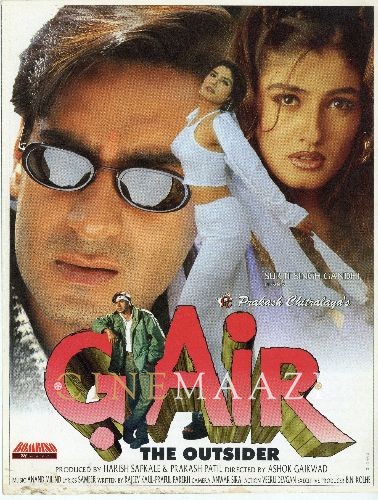
Gair The Outsider 1999
-
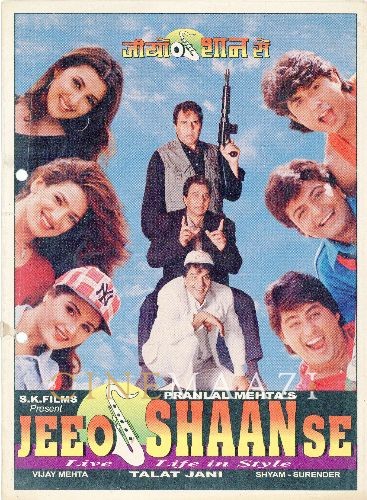
Jeeo Shaan Se 1997
-
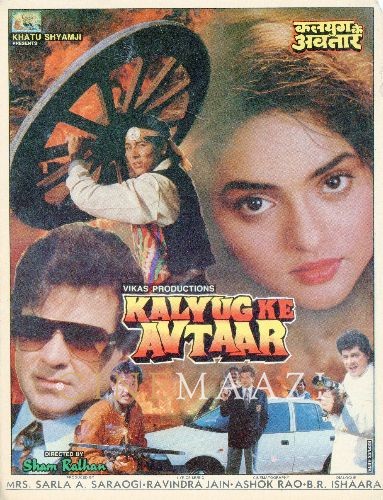
Kalyug Ke Avtaar 1995
-
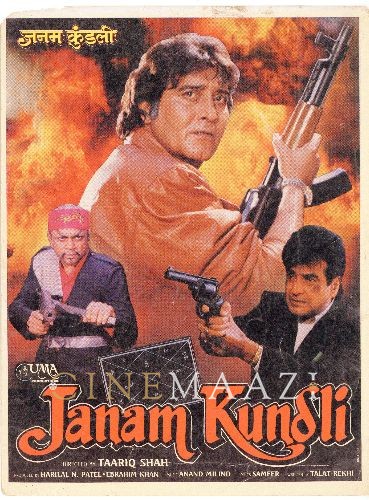
Janam Kundli 1995
-
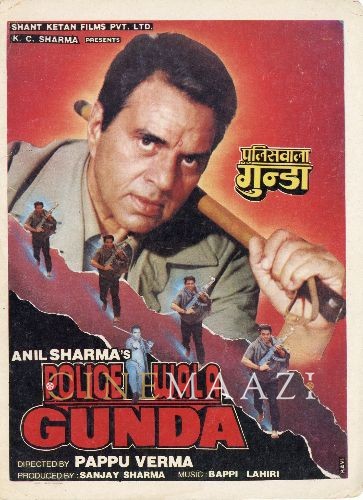
Police Wala Gunda 1995
-
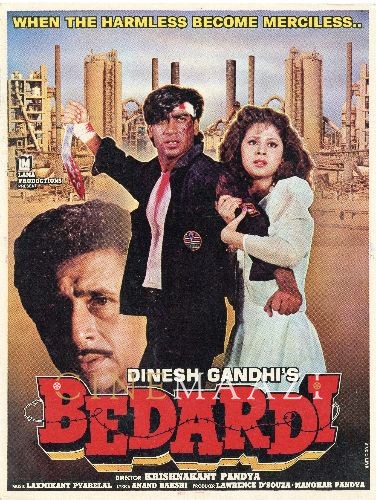
Bedardi 1993
-
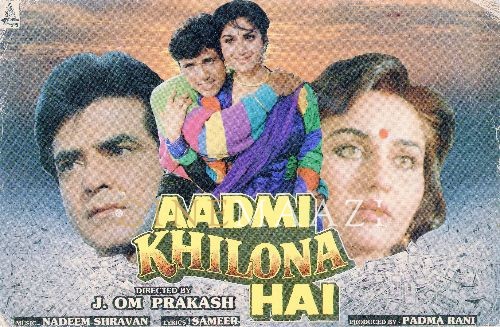
Aadmi Khilona Hai 1993
-
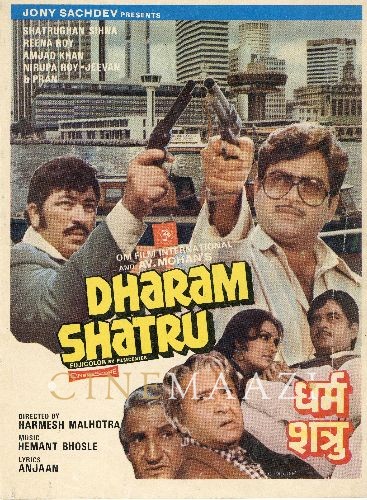
Dharam Shatru 1988
-

Faqeer Badshah 1987
-
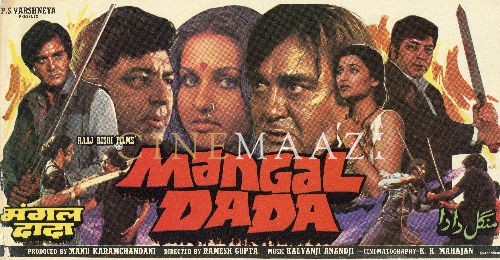
Mangal Dada 1986
-
Kali Basti 1985
-
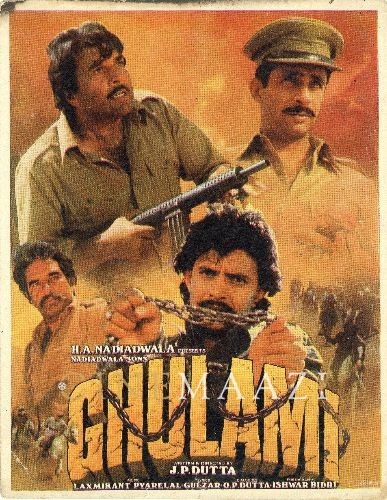
Ghulami 1985
-









.jpg)



